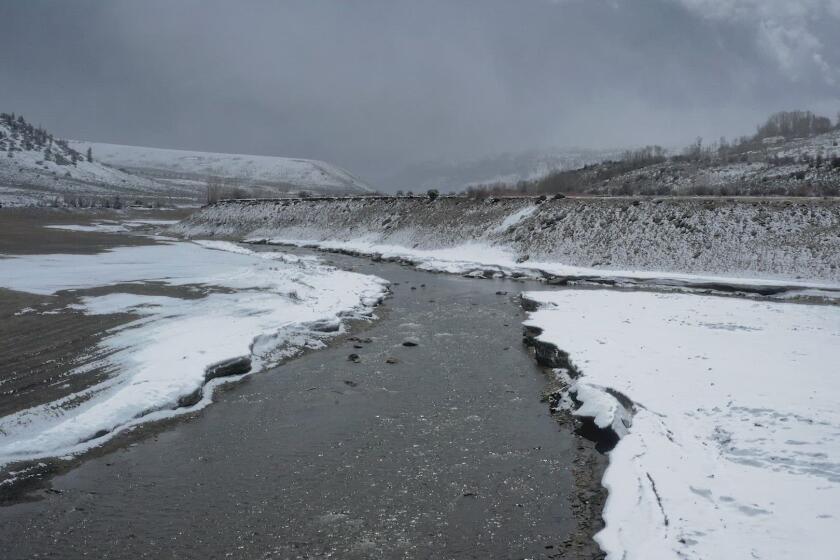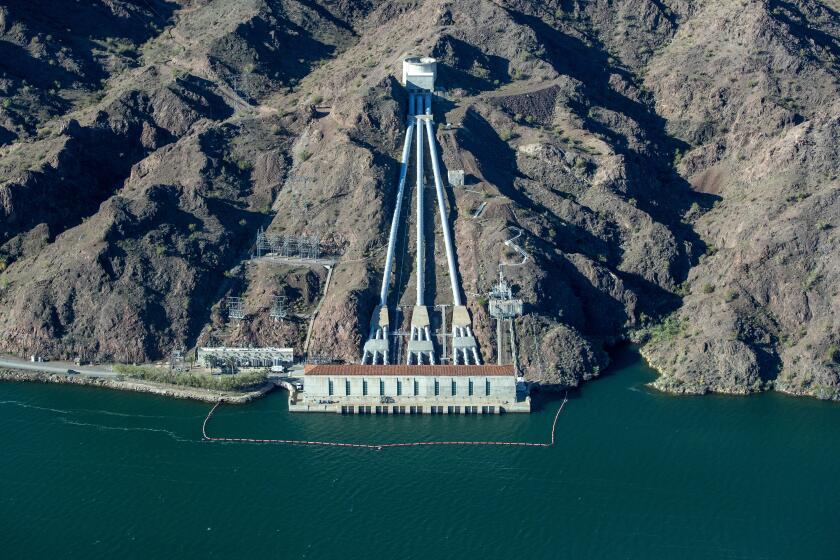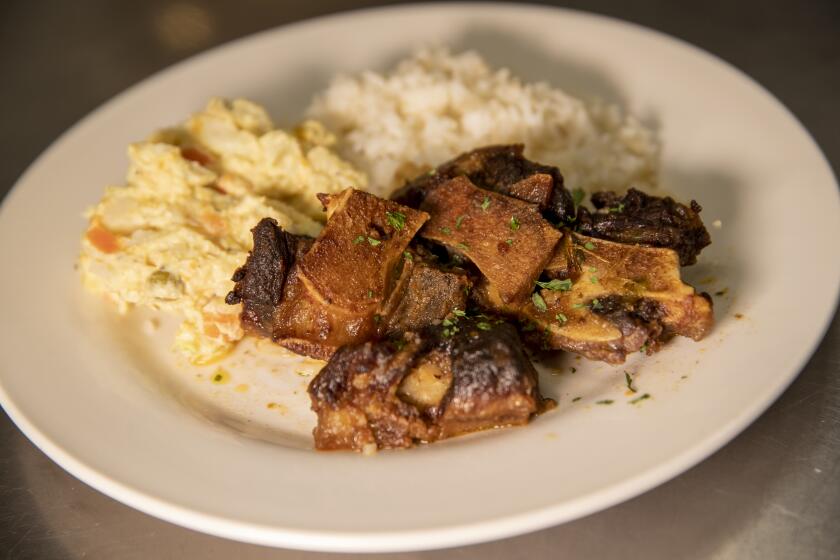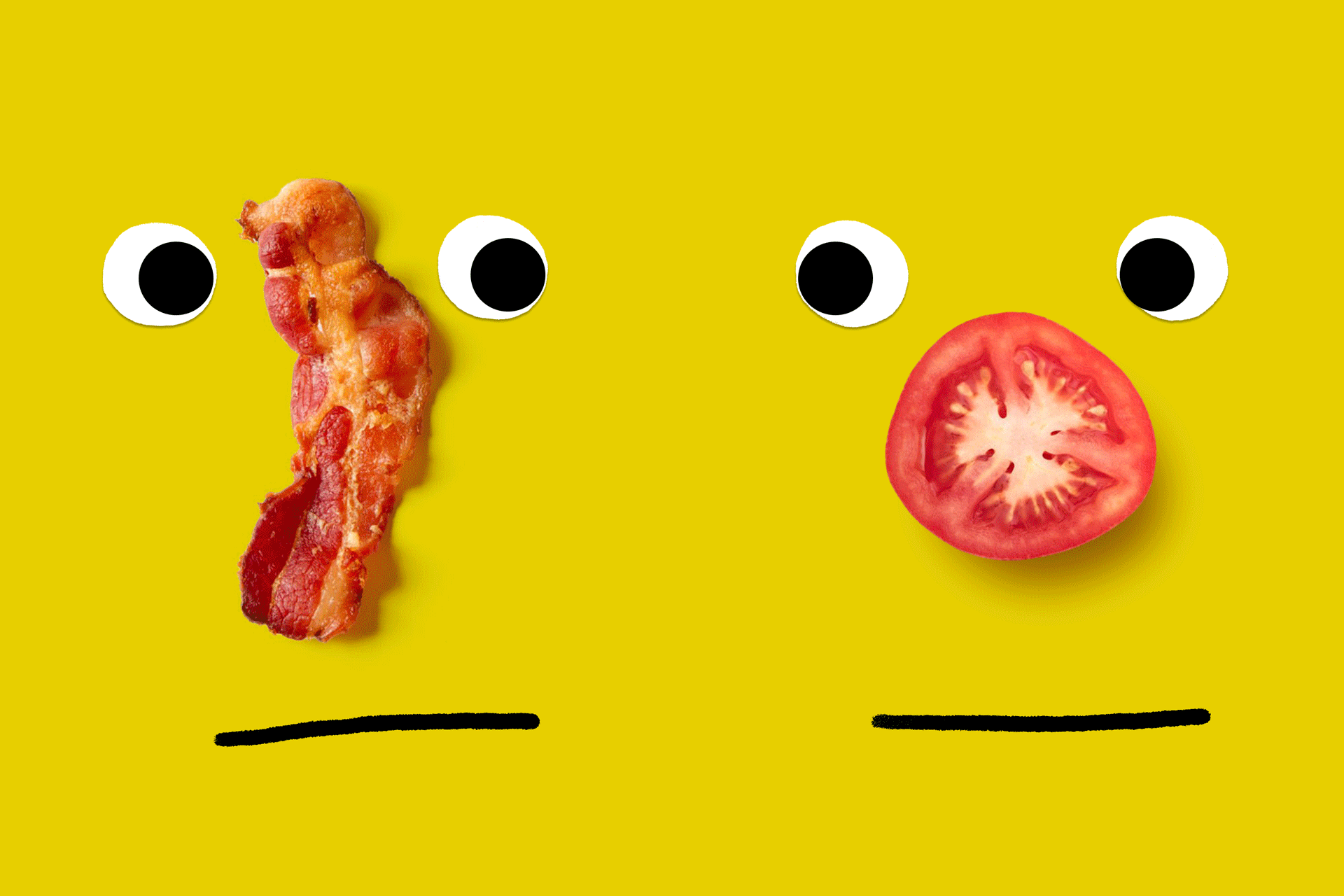Opinion: One way to save the Colorado River? Give up one hamburger a week
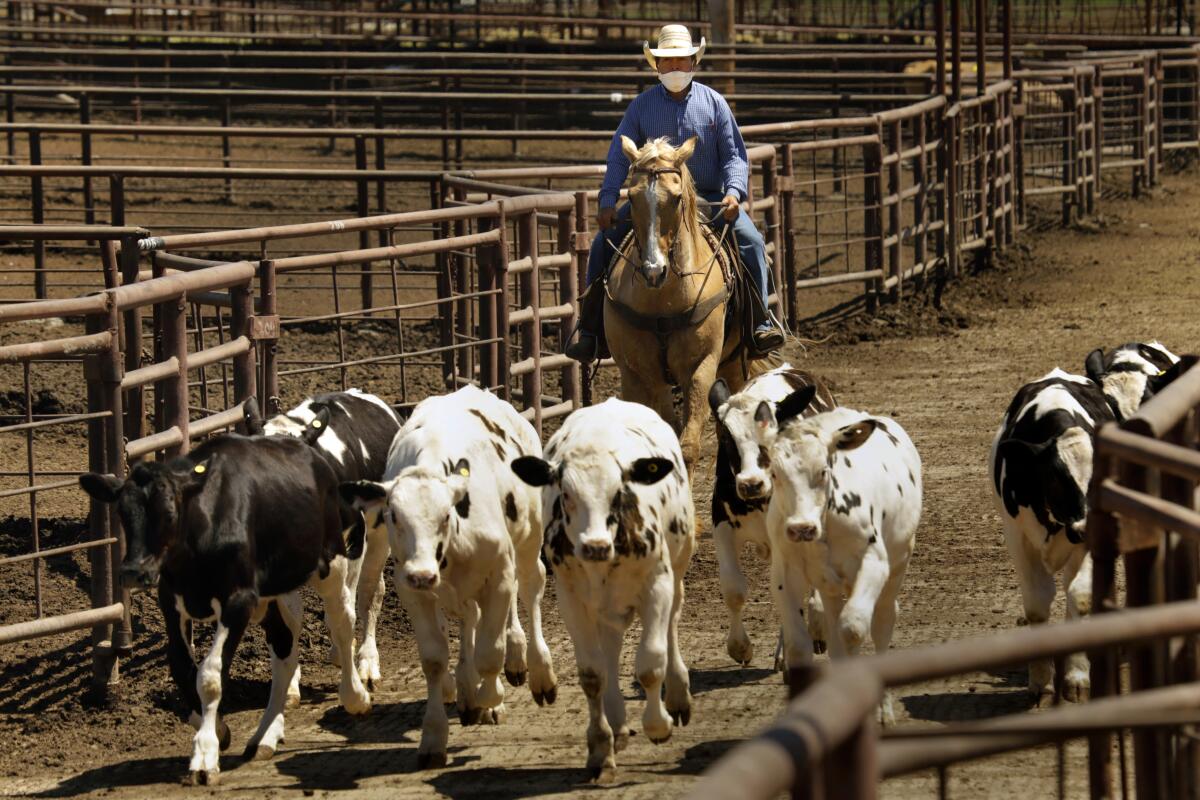
In 2019, I joined a water agency in southern California as an engineer. My role is to help manage the water we import from the Colorado River, which makes up about a quarter of the region’s total water supply. A few months into the job, I traveled to Denver with a supervisor for meetings at the Colorado State Capitol. For lunch, he led us to a nearby plant-based restaurant with a hippie vibe. I ordered a veggie burger, which I sometimes ate at home. The waiter brought the burger wrapped in a layer of melted cashew cheese.
Casting a wary eye over the “cheese,” I asked my boss about his restaurant choice. He said he’d gone vegan after learning how much Colorado River water irrigates cattle feed — almost a third of all river consumption, according to a recent study. His comment made me reconsider my own beef consumption. I felt deeply uneasy: How could I put the sustainability of the Colorado River at the center of my work while continuing to eat hamburgers?
Colorado River in Crisis is a series of stories, videos and podcasts in which Los Angeles Times journalists travel throughout the river’s watershed, from the headwaters in the Rocky Mountains to the river’s dry delta in Mexico.
Others close to me had also given up on meat. When my sister was 12, she lived with my parents in Creston, British Columbia, next door to a small farm with some cows (I had already moved out). The cows charmed her, and one she’d visit regularly she named Spencer. One day, Spencer disappeared. My sister asked where he’d gone, and my mom told her their neighbor had made Spencer into steaks. My sister was horrified; she turned vegetarian on the spot.
Later, when my sister went vegan at 28, I had thoughts about the environmental consequences of meat consumption, the cruelties of industrial meat production, and the detrimental health effects of beef, but the thoughts were inert and fleeting. After that lunch with my boss, I reflected not only on how cattle feed drains much of the Colorado River, but on how cattle production yields greenhouse gases that warm the climate and reduce the river’s water supply. My hypocrisy began to bite.
Two groups of states in the Colorado River Basin propose competing long-term plans for addressing chronic water shortages and adapting to climate change.
I talked through my unease with my wife, who shares my concern for the environment. Though we already didn’t eat a lot of beef, we still struggled to imagine life without it. But after reading more on the effects of meat production and trying some tasty new vegetarian recipes, we decided to try going beefless. Soon after, chicken and pork also dropped from the family menu. Initially, the road wasn’t easy. I confess I’ve never been a fan of steak, but I did miss a juicy hamburger from time to time. My teenage kids complained, but they soon learned to sneak their burgers and chicken tenders outside the home.
People often ask, “How do you get your protein?” I’m not a vegan, so I still eat dairy, eggs and fish (strictly, I’m a pescetarian). I also eat beans, nuts and soy products, all rich in protein. But I like my boss’ answer to the protein question best. Though he’s over 60, he doesn’t lack muscle and wins his age category in marathons and cycling races. He points to the beefy cows: “They do OK with just plants.”
There have been moments when my evolving diet has compromised my ability to feel like part of the Black community.
I’m not a zealot about my pescetarianism. We now occasionally buy meat for our still-at-home children (love made us cave), and I typically don’t persuade others to drop meat. Going meatless was a big decision that affected not just our eating, cooking and shopping, but also our social connections. When I attend work functions that include food, I always wonder if there’ll be something I can eat. For more than 10 years, my wife and I have met twice a month with two other couples to share a meal and catch up on life. Before our meatless conversion, for health reasons one couple went gluten-free and the other ditched dairy. Cooking for each other now involves a tangle of constraints, but so far no one’s starved, and we’ve become more creative chefs.
My work continues to reinforce our dietary change. I’m neck-deep in discussions over how to allocate the Colorado River’s resources after 2026, when the current allocation rules expire. The river is overdrawn, so our most difficult question is how to shrink long-term use. Recently, water managers in Arizona, California and Nevada agreed to future cuts, reducing our current collective use from the river by about 17%, under most conditions.
Running along the trails that whipsaw through the oak forests of the Palo Alto hills, I was hit with a musky, skunky smell that made the hair on my neck stand up.
Based on a UNESCO study, I estimate that half-pound beef burgers require 900 gallons of water each to make. Since, on average, Americans eat 80 pounds (36.2 kilograms) of beef per year, the equivalent of three burgers a week, I found myself wondering how much of the 17% cut we could make simply by eating one less burger a week. By my calculations, the answer is almost all of it, assuming farmers fallowed the fields that would no longer be growing cattle feed. And most Angelenos would find eating one less burger a week much easier than tearing out their lawns (which I also advocate!).
A vegan diet may not be for everyone. I truly enjoy veggie burgers. But cashew cheese? I’m not there yet, and I may never be. Thankfully, even moderate, gradual choices to eat less meat can still reduce the harm to our depleted, warming world — especially when we make those choices together.
Aaron Mead is a writer based in the Los Angeles area.
More to Read
A cure for the common opinion
Get thought-provoking perspectives with our weekly newsletter.
You may occasionally receive promotional content from the Los Angeles Times.
